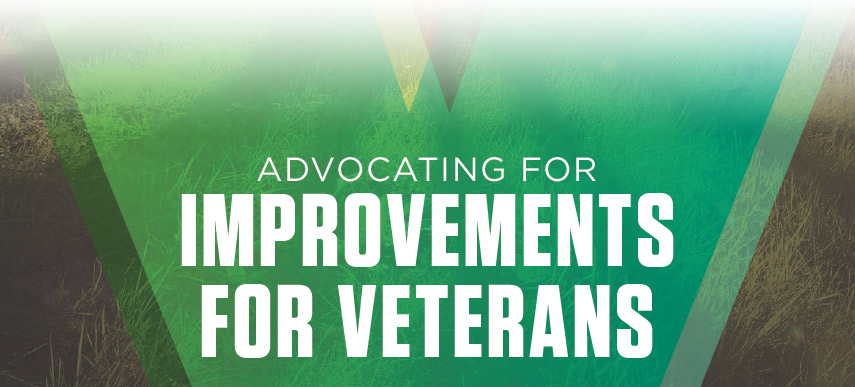One Veteran...
The One Veteran theme, established upon my arrival, applies today more than ever as we anxiously await the implementation of improvements to the New Veterans Charter. The simple theme emphasizes the point that those who sustain similar illnesses or injuries while serving their country should have access to the same benefits, regardless of the nature of their service or of where and when they served.
...A Matter of Fairness
Table of Contents
- Letter to the Minister of Veterans Affairs
- Veterans Bill of Rights
- Introduction
- About the Office
- The Year in Review
- Our Encounters with Veterans
- Strategic Intervention
- A Common Voice among the Veterans' Community
- Looking Forward
- Annexes
- Annex A - Financial Report
- Annex B - Reports Published in 2013-2014
- Footnotes
![]() Look for this symbol to hear firsthand from the members of my team.
Look for this symbol to hear firsthand from the members of my team.
Contact Information
I encourage former and current members of the Canadian Armed Forces (CAF) and the Royal Canadian Mounted Police ( RCMP ), as well as their family members and other clients of Veterans Affairs Canada ( VAC ), who have questions about their rights or concerns about the benefits and services they receive from the Department to call the Office of the Veterans Ombudsman (OVO). My team is there to provide information, referrals, and assistance in resolving issues. Each case brought to our attention provides valuable information that helps us identify trends and systemic issues. If or when in doubt, simply contact us. You stand only to gain!- Guy Parent
Calls within Canada (Toll-free):
1-877-330-4343
Email: info@ombudsman-veterans.gc.ca
Facebook: facebook.com/VeteransOmbudsman
Twitter: @VetsOmbusman
Address: 360 Albert Street, Suite 1560, Ottawa, Ontario K1R 7X7
Letter to the Minister of Veterans Affairs
The Honourable Julian Fantino, P.C. , M.P.
Minister of Veterans Affairs
House of Commons
Ottawa, Ontario
K1A 0A6
Dear Minister:
I am pleased to submit to you my fourth Annual Report, Advocating for Improvements for Veterans - Annual Report 2013-2014, for tabling in Parliament.
The Report summarizes the activities and key operations performed by the dedicated personnel of the Office of the Veterans Ombudsman from April 1, 2013 to March 31, 2014. It also highlights the areas we will be focusing on during 2014-2015.
Yours sincerely,
Guy Parent
Veterans Ombudsman
Veterans Bill of Rights
The Veterans Bill of Rights applies to all clients of Veterans Affairs. They include:
- Veterans with war service
- Veterans and serving members of the Canadian Forces (Regular and Reserve)
- Members and former members of the Royal Canadian Mounted Police
- Spouses, common-law partners, survivors and primary caregivers
- Other eligible dependants and family members
- Other eligible clients
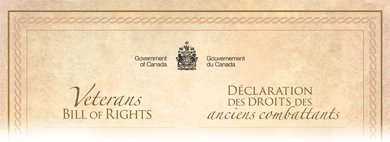
Veterans Bill of Rights
PDF
You have the right to:
- Be treated with respect, dignity, fairness and courtesy.
- Take part in discussions that involve you and your family.
- Have someone with you for support when you deal with Veterans Affairs.
- Receive clear, easy-to-understand information about our programs and services, in English or French, as set out in the Official Languages Act.
- Have your privacy protected as set out in the Privacy Act.
- Receive benefits and services as set out in our published service standards and to know your appeal rights.
You have the right to make a complaint and have the matter looked into if you feel that any of your rights have not been upheld.
The Right Honourable Stephen Harper, P.C., M.P.
Prime Minister of Canada
The Honourable Greg Thompson, P.C., M.P.
Introduction
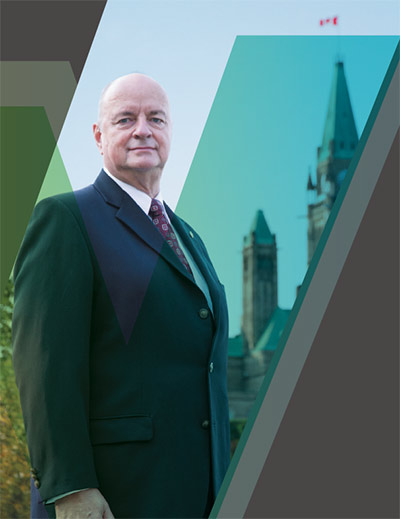
The past year was action-packed. In fact, it would be fair to say that it was the busiest year to date for the Office of the Veterans Ombudsman (OVO) since it began operations in 2007. Thanks to my team in Ottawa and Charlottetown, we achieved several major milestones that I am proud to share.
The first milestone was the broadening of the New Veterans Charter (NVC) review to include the whole Charter - not just the sections amended by the Enhanced New Veterans Charter Act. My Office and Veterans’ organizations had advocated for the complete review of the Charter for some time in order to address concerns with various Veterans’ issues that dated back to the Charter’s coming into force in 2006. The Hon. Julian Fantino, Minister of Veterans Affairs, responded to this request and announced a “…comprehensive review to place a special focus on the most seriously injured, support for families and the delivery of programs by Veterans Affairs Canada.” Achieving this milestone was of significant importance to the Veterans’ community.
The second milestone achieved was a series of in-depth analyses of key issues, published in six reviews and reports. On April 4, 2013, we published Improving the New Veterans Charter: The Parliamentary Review. Along with an intensive and broad-based consultation with Veterans’ advocates and organizations across the country, this set the groundwork for the fall publication of Improving the New Veterans Charter: The Report, which put forward evidenced-based recommendations. These addressed shortcomings in three NVC program areas: financial, vocational rehabilitation and assistance, and family support. As well, the Report’s recommendations for improvements to the NVC identified where the Charter was failing Veterans. The Report was supported by an actuarial analysis, published simultaneously, that compared financial benefits between the Pension Act and the NVC.
Commenting prior to the beginning of the fall parliamentary hearings on these reports, Minister Fantino stated that they would serve “as an important starting point for the upcoming parliamentary review.” This was echoed time and again by Veterans’ advocates and organizations appearing before the House of Commons Standing Committee on Veterans Affairs (ACVA) in the fall and winter of 2013-2014. When I appeared before the Committee on November 28, 2013, I found members to be very supportive of my recommendations. This was also the case when I testified before the Senate Subcommittee on Veterans Affairs on December 4 and 11, 2013 to assist the Subcommittee in their study on Veterans’ services and benefits.
Additional reviews were released in 2013 including: A Review of the Support Provided by Veterans Affairs Canada through its Long-Term Care Program and A Review of the Support Provided by Veterans Affairs Canada through its Veterans Independence Program. These are part of a series on Veterans’ health care benefits and programs. As well, early in the year, we released our Report titled Investing in Veterans Vocational Training. Minister Fantino responded quickly to this Report with an announcement of $2 million over five years and the commitment to simplify the vocational rehabilitation process for more than 1,300 Veterans. By establishing a fund of up to $78,500 per Veteran undertaking vocational rehabilitation and by removing unnecessary red tape, the Government eliminated a previous $20,000 cap on tuition and allowed greater flexibility in reimbursing training-related expenses.
The third milestone achieved was an enhanced level of OVO engagement with the Veterans’ community. Through one-on-one meetings, telephone calls, emails, town halls, blogs, news events, news articles, opinion pieces, editorials and social media, we reached out to and connected with more Veterans and their families than ever before. They responded generously with their time and experiences by sharing with us not only their worries and concerns, but also their ideas on how to solve Veterans’ outstanding issues.
Yes, it was a busy year and I expect next year to be equally active. I am looking forward to 2014-2015 with great anticipation. After seven months of hearings, ACVA is soon to produce its report on the NVC. I hope that its recommendations live up to the expectations of the Veterans’ community. This is the time for real change. Our Veterans and their families deserve no less.
Guy Parent
Veterans Ombudsman
“NCVA and The War Amps wish to commend Guy and his team for taking a strong leadership role over the last year in effectively advocating long needed reform in relation to Veterans’ legislation. The well-researched empirical studies carried out by the Veterans Ombudsman’s Office, with particular regard to the New Veterans Charter and Long Term Care, provide invaluable ammunition in petitioning and pressuring Government to live up to the social covenant owed by Canada to our Veterans and their dependants.”
About the Office
The Swedish word "ombudsman" means "representative of the people."
There are 700,000 Veterans in Canada and more than 100,000 still-serving members of the CAF and the RCMP who one day will join their ranks. Whether or not they receive services and benefits from VAC, I consider all of them and their families to be stakeholders of the OVO.
Overview
The OVO functions in accordance with the standards of practice of the International Ombudsman AssociationFootnote 1, which are endorsed also by the Forum of Canadian OmbudsmanFootnote 2, namely, independence, impartiality and neutrality, confidentiality, and informality. These standards govern the way in which the Office receives complaints, works to resolve issues, and makes objective and evidence-based recommendations that I provide to the Minister of Veterans Affairs and VAC.
As an arms-length organization, the OVO acts as an independent voice for all those served by VAC. As such, we provide direct services to a widely-dispersed client base to ensure that the needs of Canada’s Veterans and their families are considered. Additionally, my role as a Special Advisor to the Minister of Veterans Affairs offers me the opportunity to present matters of importance to the Veterans' community directly to the Minister.
The OVO gives credence to the Government’s commitment and recognition of the importance of treating Veterans and their families fairly in regard to accessing VAC programs, services and benefits. At the Office, we view fairness as an outcome that can be objectively measured in terms of the adequacy, sufficiency and accessibility of the benefits and services to address the needs of ill and injured Veterans and those still in uniform.
My Office continues to respect the One Veteran theme, which guides how issues are viewed. Those with similar illnesses or injuries should have access to the same benefits, regardless of the nature of their service or of when and where they served.
Our Mandate
The Order in Council P.C. 2007-530Footnote 3, gave me and my team the mandate to:
- review and address complaints by clients and their representatives arising from the application of the provisions of the Veterans’ Bill of Rights;
- identify and review emerging and systemic issues related to programs and services provided or administered by the Department or by third parties on the Department's behalf that impact negatively on clients;
- review and address complaints by clients and their representatives related to programs and services provided or administered by the Department or by third parties on the Department's behalf, including individual decisions related to the programs and services for which there is no right of appeal to the Veterans Review and Appeal Board;
- review systemic issues related to the Veterans Review and Appeal Board, and
- facilitate access by clients to programs and services by providing them with information and referrals.
"My work is challenging because of the complexity of the legislation which applies to the programs and services offered by VAC, and because of the emotions that are at times present when people feel they are not receiving what they need, have earned and deserve."
Our Vision Statement
At the OVO, we share the vision to be widely recognized as:
- an independent and impartial organization that is dedicated to fairness for all Veterans and their families;
- a rallying point for Veterans issues and an action-oriented organization that anyone can come to on matters that negatively impact the Veterans community, with absolute confidence that the Office will work tirelessly in their best interests, and
- an organization, with dedicated, professional and respected employees, that has the credibility and determination to effect timely and positive change when situations of unfairness are encountered.
Our Mission Statement
Our mission is to advance the fair treatment of the Veterans’ community and to uphold the rights articulated in the Veterans’ Bill of Rights by reviewing and addressing complaints, systemic problems and emerging issues regarding the programs, services and benefits provided by VAC.
Who We Serve
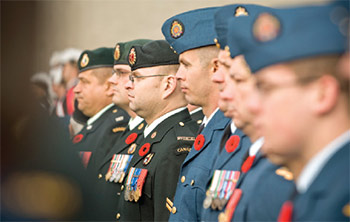
My team stands ready to assist members of the Veterans’ community, serving members of the CAF and the RCMP, as well as other clients of VAC:
- Veterans of the Second World War and the Korean War;
- Veterans of the CAF (Regular Force and Reserve Force);
- Serving members of the CAF (Regular Force and Reserve Force);
- Veterans of the RCMP;
- Members of the RCMP;
- Immediate family members and caregivers of any of the above-mentioned groups, and
- Survivors of Veterans of the First World War.
“Guy Parent's performance and conduct during the last year have markedly raised the profile of the Veterans Ombudsman to the nation's Veteran's community and in Parliament. The hallmark of Guy is his integrity. His integrity allows him to deliver his straightforward fact-based reports to a broad spectrum of recipients. Reports that are not always welcomed by some, but reports used by many others who are seriously endeavouring to address long-standing Veterans’ issues.”
Our Services
These are the four main services my Office provides:
Information: Frequently, those who call the Office are unaware of the benefits, services, and redress mechanisms available to them. Our Office helps them navigate the complexity of the system by providing information about their rights and about the benefits and services provided by VAC and other organizations.
Referrals: The Office assists those who call for help, often as a last resort, by facilitating referrals to service providers that can best assist them.
Complaint resolution: The Office addresses complaints from individuals who believe they have been treated unfairly by VAC or other service providers. To bring closure as quickly as possible, every attempt is made to resolve complaints informally and at the lowest level possible, most often through inquiries and informal mediation with service providers.
Interventions to address systemic issues: When the facts of a case raise systemic issues that can potentially affect many other Veterans and clients of VAC, when there are multiple complaints about the same issue, or when issues emerge as a result of the Office’s interaction with the Department and the Veterans’ community, the Office will intervene using various approaches based on the nature and complexity of the issue:
- Simple procedural issues, for example, are discussed informally with the Department to bring resolution as quickly as possible. A telephone call or an exchange of correspondence is often all that is required to bring about change.
- The Office undertakes reviews that summarize the information available on a particular topic, as well as the various points of view. Review papers, which do not contain recommendations, are produced for the purpose of facilitating informed discussion of issues of concern to the Veterans’ community, and
- Complex issues may require thorough research and analysis, leading to a formal report with recommendations to the Minister of Veterans Affairs. These reports are published 60 days after submission to the Minister.
Structure of the Office
As an advisor to the Minister of Veterans Affairs, I am supported by a team of 37 employees located in Ottawa and Charlottetown, including service representatives, early intervention analysts, program review advisors, communicators, a legal advisor, policy advisors, and administrative support staff. Among my team you will find former members of the CAF and the RCMP, as well as experienced public servants.
My team and I also rely on an Advisory Council for advice on matters of concern to the Veterans’ community, to foster cooperation among Veterans’ groups and to increase dialogue between us and the Veterans’ community. The Advisory Council is comprised of Veterans’ representatives, professional advisors from academia, health care, rehabilitation or other fields, as well as affiliate members with varied areas of expertise.
Organizational Chart
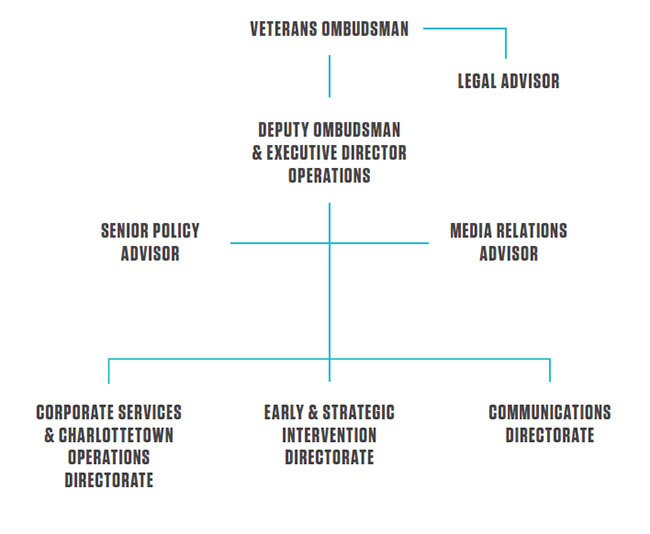
Structure of the Office Organizational Chart
- Veterans Ombudsman
- Legal Advisor
- Deputy Ombudsman & Executive Director Operations
- Senior Policy Advisor
- Media Relations Advisor
- Corporate Services & Charlottetown Operations Directorate
- Early & Strategic Intervention Directorate
- Communications Directorate
"Often it is unclear to Veterans why VAC is denying a particular benefit. An unexplained refusal is frustrating. I am glad when I can help Veterans gain access to benefits they need or, for those with complex needs, point them towards another allocation or benefit for which they clearly meet eligibility criteria."
The Year in Review
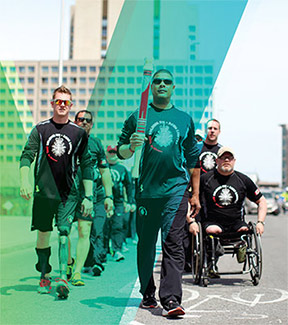
To many observers, 2013-2014 was a year of ever-increasing challenges for ill and injured Veterans and their families. Hardly a day went by without a media report sharing their plight with Canadians. At the OVO, we advocated for improvements for Veterans throughout the year.
We identified early on many hurdles faced by ill and injured Veterans after military service. Ill or injured Veterans and their families need to be properly supported and cared for to ensure that their standard of living, after being released, is not reduced. They also need hope to be able to move forward and see a viable path ahead as they transition from military to civilian life.
In 2013-2014, we set out to improve access to VAC programs and benefits for ill and injured Veterans with evidence-based research that generated actionable recommendations for Government. I must be confident that they will receive the support needed to move forward and carry on with their new life. I will therefore continue to pursue the issue.
Professional Development Program

Great progress was made last year with the Professional Development Program initiated in 2012-2013. Learning sessions such as research analysis methods and project management were conducted and all OVO employees were encouraged to attend. The feedback of participating members was collected to capture lessons learned and improve the program itself.
Staff enrolled full time in the program have completed 75 percent of their learning. They are engaged and well-motivated and they have advanced within their designated groups. Thanks to this initiative, the OVO is better able to conduct succession planning and retain its knowledgeable and skilled personnel. This is essential to the provision of optimal services that will help achieve resolution of systemic issues of concern to Veterans, their families and the Veterans' community.
"Veterans or their family members are in many cases at a loss when they engage the Veterans Ombudsman’s Office. Learning to carefully listen to and calmly dialogue with individuals that are very emotional was not easy. To properly serve Veterans, I need to show understanding and a desire to achieve resolution; I need to build a relationship based on trust."
We began the year with 127 cases from the previous year and added 2,130 new cases during 2013-2014. This was a 15 percent increase from the previous year and the largest number the Office has handled since its creation.
Former Regular Force members remained our largest stakeholder group, representing 39 percent of clients. The number of traditional Veterans declined by three percent, and represented eight percent of clients.
We addressed 95 percent of our 2,257 cases, consistent with our previous year’s performance. Despite the increase of 183 cases, fewer cases remained opened at year end, to be carried over into 2014-2015.
Contacts to the OVO
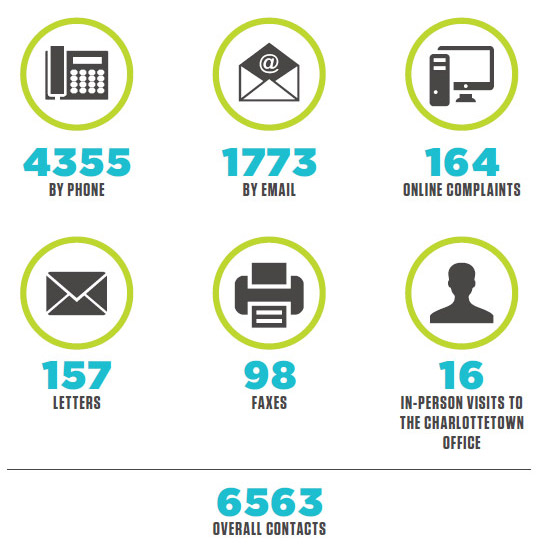
Contacts to the OVO
4355 by phone, 1773 by emails, 164 online complaints, 157 letters, 98 faxes, and 16 in-person visits to the Charlottetown Office (overall contacts 6563)
Individual Cases by Region
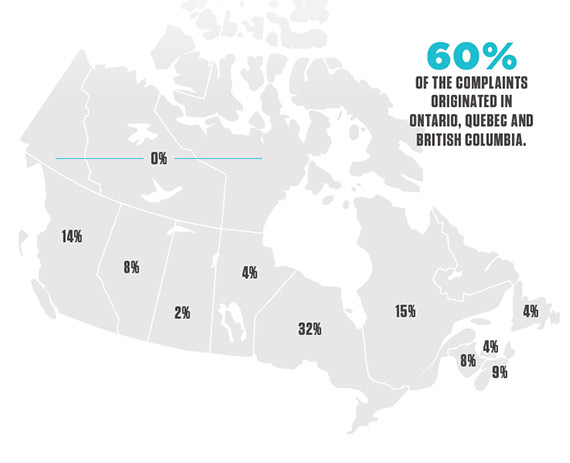
Individual Cases by Region
Sixty percent of the complaints our Office received originated in Ontario, Quebec and British Columbia. (0% for Yukon, Northwest Territories, and Nunavut): ON 32%, QC 15%, BC 14%, NS 9%, AB 8%, NB 8%, MB 4%, PEI 4%, NL 4%, SK 2%
During 2013-2014, the OVO received over 6,500 contacts from nearly 1,300 stakeholders. This resulted in the creation of 2,130 case files addressed through the provision of information, a referral or an intervention.
Most Prevalent Issues
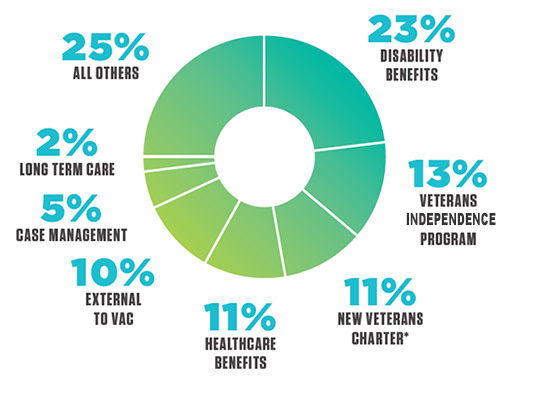
Most Prevalent Issues
23% Disability Benefits, 13% Veterans Independence Program, 11% New Veterans Charter, 11% Healthcare Benefits, 10% External to VAC, 5% Case Management, 2% Long Term Care, 25% All Others
*NVC category includes cases of Earning Loss Benefits, Vocational Rehabilitation and Permanent Impairment Allowance
Reaching Out
Following the April 4, 2013 release of Improving the New Veterans Charter: The Parliamentary Review, we organized a series of meetings with key advocates from the Veterans’ community, including chairs of past VAC advisory committees and representatives from various organizations. Together, we discussed the best way forward for Veterans and their families, including the need to open up the parliamentary review of the NVC.
"The highlight of my outreach tour to Newfoundland and Labrador was visiting Conception Bay South, the first Canadian municipality to have a Veteran and Family Community Covenant."
I also travelled across Canada to meet Veterans and their families at town halls and other events. During these events, I always asked for their opinions and discussed options. For example, in April, I visited Corner Brook, Gander, Conception Bay South and St. John’s in Newfoundland and Labrador. While in St. John’s, I met with the local RCMP and RCMP Veterans’ Association. In line with my theme of One Veteran, I am committed to ensuring that members and former members of the RCMP know that the Veterans’ Bill of Rights applies to all clients of VAC, including them.
"Connecting with Veterans of the Canadian Armed Forces and the RCMP, their families and community members is the best way for me and my team to hear firsthand about the issues directly affecting our Veterans."
Later in May, I was in New Brunswick at a town hall in Miramichi and I attended the RCMP New Brunswick Division’s spring meeting. There, I had the opportunity to present at a monthly meeting of the RCMP Veterans’ Association’s Ottawa Division. This was followed in June with a town hall in Ottawa, Ontario and another on the North Shore area of Montreal, Quebec. At every opportunity, I shared the preliminary results of the extensive research and consultation effort that our Office had undertaken in the past year. Opinions were openly shared and valuable comments and suggestions were collected and integrated into our Report on the NVC and its Actuarial Analysis released on October 1, 2013. This resulted in a better-informed discussion at the parliamentary committee reviews of the NVC that began in late October.
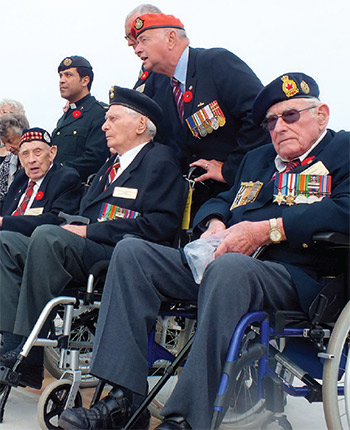
Reaching out internationally, I was honoured to travel to Korea with Canadian Veterans to commemorate the 60th anniversary of the Korean War by returning to the battlefields on which they fought.
I was also proud to present at the 5th International Conference of Ombuds Institutions for Armed Forces (ICOAF) in October 2013. The conference was organized by the Geneva Centre for Democratic Control of Armed Forces and the Norwegian Parliamentary Ombudsman for the Armed Forces.
Notwithstanding the high tempo of communications and outreach activities sustained throughout the year, I fully realize that much more is needed. The awareness survey we conducted in the spring of 2013 established a baseline upon which to build service improvements. The study revealed that 76 percent of surveyed clients are aware that there is an Office working to ensure Veterans, serving members of the CAF and the RCMP are treated in accordance with the Veterans’ Bill of Rights and receive the services and benefits that they require. However, only 47 percent of clients surveyed were aware of the OVO or recognized our organization by name.
"The NATO Veterans Organization of Canada takes great satisfaction with the work of the Office of the Veterans Ombudsman and its dedicated team as demonstrated in the numerous important recommendations made in its reports. These recommendations, which were the result of significant consultations, speak directly to the needs of Canada's Veterans and are the yardstick against which all Canadians can monitor progress on addressing the health and well-being of those who have so selflessly served our country. Now is the time to see these recommendations acted upon."
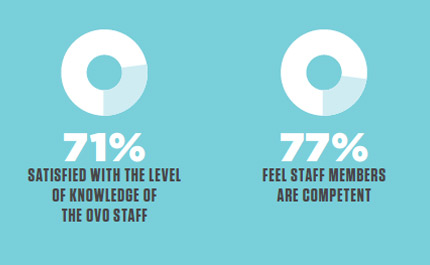
Client Satisfaction Survey
A Client Satisfaction Survey conducted in the winter of 2014 revealed that the OVO is evaluated favourably among its clients in terms of respect, courtesy, and offering services in clients’ official language of choice, along with competency, ability to communicate, clarity of letters, hours of service, and ease of reaching staff. More specifically, 71 percent of surveyed clients were satisfied with the level of knowledge of the OVO staff and 77 percent felt staff members were competent. In an effort to increase client satisfaction, improve our services and promote professional development, 100 percent of OVO employees completed a Learning Plan in 2013-2014 to further their knowledge and service orientation competencies.
"I look forward to sharing ‘the Canadian experience’ with delegates from around the world. This is one area in which Canada has shown true leadership by being the first – and to date the only country – worldwide to have recognized early on the need for a national Veterans Ombudsman. The Government of Canada took the initiative in 2007 and established the first Office of the Veterans Ombudsman. I am very pleased that Canada’s unique approach to Veterans’ issues is attracting interest beyond our borders and I hope to see it take root in other countries."
Outreach Facts and Stats

Outreach Facts and Stats
44 Domestic outreach events, 2 international events, 51 Briefings to Parliamentarians (MPs and Senators), 41 Stakeholder Meetings, 118 Media interviews granted, 50 Published Articles, Blogs, News Releases and Op-eds
Our Encounters with Veterans
At the forefront of what the OVO does to improve access to benefits and services for Veterans and their families are the dedicated members of my team in Ottawa and Charlottetown. There is no better way to pay tribute to their work than by allowing them to tell you their experiences firsthand.
I am pleased to share some of their stories and insightful observations:
Vocational Rehabilitation Based on Veteran’s Preference
“Prior to willingly undertaking vocational rehabilitation, a Veteran was assessed as employable in a clerical capacity only because of his administrative experience. He was not given a choice but to enrol in secretarial training despite strongly expressing his lack of interest, his preference to train in a different program, and the fact that the cost and duration for secretarial training and the program he was interested in were similar. A key consideration when it comes to vocational rehabilitation should be the individual’s preference. Only considering suitability increases the risk that motivation will be lacking and reduces the probability of success. In this case, it was unreasonable to force a career path on someone. Thanks to the OVO’s intervention, the Veteran was able to enrol in the program of his choice.”
Updated Benefit Grid Better Reflects Treatment Costs

“Many injured Veterans require physiotherapy, massage therapy or other treatment of the sort to either heal a wound or relieve pain, thereby maintaining an acceptable level of comfort. The reimbursement rates for such treatments must be revisited regularly to ensure they reflect current rates. Otherwise Veterans may no longer be able to afford the necessary treatment. I was pleased to see the benefit grid was updated in 2013 after the OVO brought to VAC’s attention the fact that the reimbursement rates for some treatment had fallen well below the going rates.”
Long-Term Care Costs Reimbursement
“Last year, I came across the case of a frail elderly Veteran that was being refused reimbursement for a large portion of his long-term care costs because the person administering his finances was unaware of the benefit and that the application for reimbursement had to be made within 18 months off incurring the expense. His eligibility was never in question but because of a lack of awareness of VAC regulations on the part of a helping relative, the repayment for long-term care qualifying expenses over the span of several years was denied. To avoid an important financial loss for this Veteran, given that this was through no fault of his own, the OVO requested that VAC approve the reimbursement of long-term care costs on an exceptional basis.”
Helping Veteran with Claims Submission

“After VAC referred a War Veteran to Social Services, he called the OVO looking for assistance, reiterating that he was seeking support for his spouse who was becoming frail. At first glance, VAC appeared to be correct in referring him to Social Services, but after carefully listening to the Veteran, I understood that his spouse had been caring for him because his own health was poor. His condition prevented him from taking part in daily household chores. Similar cases I had dealt with in the past had easily been linked to the Veteran’s prior service and I recommended that he contact VAC again to apply for a disability pension for himself.
On his second call to the OVO, I learned that he had not succeeded on his own and offered to help with the application, knowing full well this Veteran qualified for both a disability pension and the Veterans Independence Program. Therefore, he would be able to get financial support for housekeeping services and grounds maintenance allowing him and his spouse to remain in their home for as long as safely possible.
I know that in instances like these, I can make a massive difference in some people’s lives. The feeling of accomplishment and satisfaction that my work brings is amazing.”
Veteran Reimbursed for Medicinal Marijuana
“A Veteran sought reimbursement from VAC for medicinal marijuana. The claim was denied based on VAC’s restrictive policy governing reimbursement of medicinal marijuana. Unhappy with the decision, the Veteran contacted the OVO for assistance.
Working cooperatively with departmental staff, the claim was accepted based on clarification of policy and it was agreed that the Veteran would be reimbursed for his initial claim. It should be sufficient to have a valid doctor’s prescription authorizing the use of medicinal marijuana, provided by a Health Canada licenced grower, for a Veteran to obtain reimbursement.
When these requirements have been met, VAC must tend to the needs of the Veteran. Long wait periods only create more anxiety and pain for the Veteran, further delaying recovery.”
Strategic Intervention
Despite all the best efforts, in many instances our frontline staff cannot successfully navigate the administrative, legislative and regulatory barriers. When this occurs, my directors and my Deputy will intervene at their respective level and reach out to their VAC counterparts.
For example, on several occasions, VAC interpreted both the Pension Act and the NVC in a manner so as to cease the processing of disability benefit claims to Veterans who passed away before a decision was rendered or before a payment was made. Simply put, a favourable decision could have been rendered and a cheque issued to a Veteran, but the money claimed by survivors, dependants or the estate was clawed back.
On three separate occasions, the OVO helped survivors or dependants faced with this issue, and advocated that the first principle of the Veterans’ Bill of Rights – “[to] be treated with respect, dignity, fairness and courtesy” – applies not only to Veterans, but also to their families, dependants and survivors.
The latest case was one that took almost three years to resolve from start to finish. A Veteran submitted an application for disability benefits and received a favourable decision. Unfortunately, the Veteran died before financial compensation arrived. After being informed of the death of the Veteran, VAC agreed to re-issue the monies to the Estate, but contrary to the agreement, VAC then cancelled the payment. The Veteran’s family fought for another year for what they thought was fair before contacting the OVO. The issue was raised with the Department and VAC decided to pay the Estate the money that was originally promised.
The OVO is of the belief that payment of disability benefits, designed to compensate for pain and suffering, should be issued even after a Veteran has died, provided a duly completed application form has been submitted. No Veteran or their family should be penalized for departmental delays in processing and issuing the payment of disability benefits. I have also recommended that the Minister of Veterans Affairs instruct VAC to stop pursuing legal action to recover monies paid to deceased Veterans.
"It took time and effort to familiarize myself with VAC’s programs and services and the processes that must be followed by Veterans to meet eligibility criteria and access benefits. It’s no wonder this can be confusing and overwhelming for Veterans."
A Common Voice among the Veterans' Community
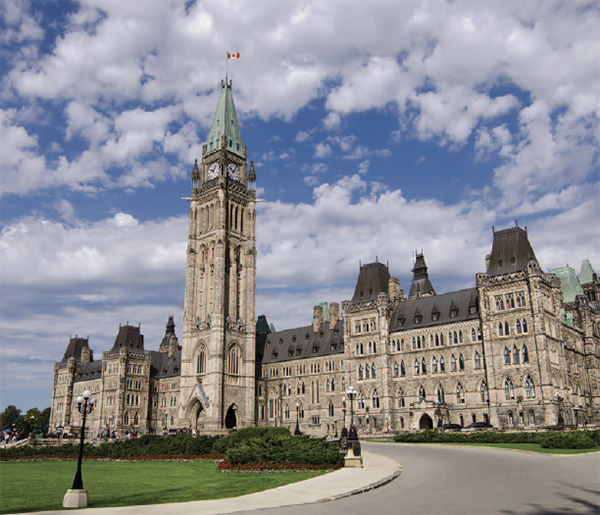
Although there are many voices speaking for the Veterans’ community, in the past year there has been a growing agreement on the key shortcomings that need to be addressed in the NVC. I am heartened by the support of many Veterans’ organizations for the work of the OVO and the recommendations that we put forward in our Report on the NVC.
Within days of the Report being released, it earned support from many Veterans’ organizations and advocates across Canada. This early support was echoed often when the parliamentary hearings began on the NVC.
When Ronald Griffis, the National President of the Canadian Association of Veterans in United Nations Peacekeeping, appeared before ACVA on February 25, 2014, he stated that: “We are fully aware that Veterans Ombudsman Guy Parent has already appeared before this honourable committee. In principle, we support the testimony and presentation by our Veterans Ombudsman. He touched all the required bases.”
This was followed on March 6, 2014, by Gordon Moore, Dominion President of the Royal Canadian Legion, who appeared before the Committee along with Brad White, Dominion Secretary, Gordon Jenkins, President of the NATO Veterans Organization of Canada, and Percy Price, its Acting Director of Advocacy. Mr. Moore commented: “The Legion agrees with the deficiencies identified in the Veterans Ombudsman's report “Improving the New Veterans Charter”. The reports are well researched, evidence-based, and informed by actuarial, independent analysis, and as such, should be used as the baseline for the parliamentary review.” Speaking on behalf of the over 320,000 members of the Royal Canadian Legion, Dominion President Gordon Moore told Committee members “…that the key shortcomings identified in the reports of the Veterans Ombudsman had been at the forefront of Legion advocacy for several years.”
He concluded his remarks by saying: “The Office of the Veterans Ombudsman has conducted the most comprehensive research and analysis work undertaken on the New Veterans Charter. The analysis is done. It's thorough and unbiased. Mr. Parent personally tested his recommendations with most of the Veterans’ organizations and stakeholders. It is consistent with recommendations since 2006. Use this report as the blueprint for action.” This statement was strongly supported by Mr. Gordon Jenkins, President of the NATO Veterans Organization of Canada.
This was echoed on April 3, 2014, by BGen Joseph Gollner, Patron of the Canadian Peacekeeping Veterans Association: “…the Veterans Ombudsman has produced very legitimate, well-researched papers, the likes of which we have never seen before, at least in public, setting out in a clear, forthright manner that everybody can read and understand, and he has been consistently supported by the various ministers of Veterans Affairs or else the reports would not be where they are today. And they are used as benchmarks by many people.”
"Misinterpretations of complex VAC policies are common and clarifying misunderstandings or explaining policies is a huge part of our work, as is uncovering the many unique cases that must make exception to the rule."
"Outstanding professionalism, forthright consultation and solid, research-based advice to Government on the most critical issues impacting Veterans and their families have been the consistent hallmarks of the Veterans Ombudsman, Guy Parent, and his Office, throughout a busy year. In addition to quietly and effectively ensuring that many problems confronting individual Veterans were resolved, the Veterans Ombudsman's call for action and compelling reports on urgent requirements for improvement to the New Veterans Charter, supported by detailed actuarial analysis and extensive consultations with the Royal Canadian Legion and other Veterans organizations, made a huge contribution to the understanding and ongoing dialogue in this complex and extremely important area and was an essential input to the recent comprehensive Report by the House of Commons Standing Committee on Veterans Affairs entitled, "The New Veterans Charter: Moving Forward", now being considered by Government. BRAVO ZULU, congratulations and heartfelt thanks to the Veterans Ombudsman and his fine team for their selfless dedication and excellent efforts on behalf of Canada's Veterans and their families!"
Looking Forward
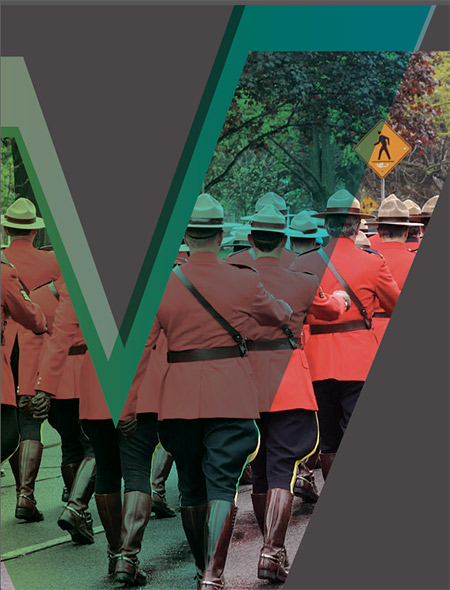
I believe that the Government of Canada has a unique historic opportunity in the next year to address the shortcomings of the NVC programs, benefits and services provided to CAF members, Veterans, spouses and survivors. It is with great pleasure that my team and I will collaborate with VAC in support of this endeavour.
ACVA will table its report on the NVC with recommendations for change to the Charter in June 2014. There are high expectations from Veterans and their families and Veterans’ organizations across Canada that this report will serve as a catalyst for changes to the NVC that have repeatedly been identified but never actioned.
The men and women who serve in the CAF and the RCMP willingly accept the risks to health and life that are inherent to service. If they are injured or become ill and can no longer serve in uniform, the Government of Canada has an obligation to help them rebuild their lives and restore, to the greatest extent possible, their health, financial independence, and quality of personal and family life.
The support of Veterans and their families through effective and fair access to benefits – regardless of the nature of their service or of where or when they served – should be a priority for Canada. This is what generations of Canadians have believed to be theirs and their government’s obligation. Each passing day that the problems that I and others have identified with the NVC are not remedied is another day that Veterans and their families struggle with the stresses of transitioning from military to civilian life without adequate support.
Most of us recognize intuitively that there is a direct link between how we treat our Veterans and our ability to recruit and retain citizens for our military. If the needs of ill or injured Veterans are not being met, then why would anyone want to join the military or stay in it for any length of time? For this reason, it is imperative that we begin to consider the provision of Veterans’ benefits as a matter of national security because it is a fundamental element in the defence of our nation.
On average, 5,000-6,000 Regular Force members release annually from the CAF. Close to 80 percent release with minimal support required and successfully transition to civilian life. But the remainder are not so fortunate and are released for medical reasons. At this time of great adjustment in their lives, we need to be able to ensure that they transition successfully.
I view fairness as an outcome that can be objectively measured in terms of the adequacy, sufficiency and accessibility of the benefits and services to address the needs of ill and injured Veterans and those still in uniform. That is the measure my Office uses to determine the fairness of Veterans’ programs and services.
I believe that all of the elements are now available to make VAC’s programs and services work, but the system needed to effectively deliver them is not. It continues to fail some of our Veterans for two reasons. The first is addressed in my Report on the NVC and highlights the shortcomings in three program areas: financial, vocational rehabilitation and assistance, and family support. The second is a complex, multilayered and outdated service delivery process/model.
Therefore, since parliamentary committees have recognized that the current way of doing business is not generating the results needed to resolve the problems facing Veterans and their families in Canada today, is it not time that we change our vision of VAC’s service delivery approach? If we start by fixing the clearly identified problems at the front end of the process, we would reduce the effort and cost currently expended to provide the various levels of appeal at the back end of the process. Anything less is a disservice to Veterans and their families as well as to Canadian taxpayers.
Former serving members of the CAF are well-trained and highly skilled; they have a great deal to offer to the Canadian workforce and economy. Capitalizing and leveraging the human capital resource Veterans represent by providing them with effective transition services makes a great deal of sense as a strategic reinvestment in Canada’s future.
That is why in the coming year, my team and I will focus on transition issues and work closely with the Office of the National Defence and Canadian Forces Ombudsman. This will be the first initiative of its kind between federal Ombudsmen’s offices in Canada.
It is also our intent in the coming year to publish an evidence-based Report on the NVC’s Permanent Impairment Allowance and Permanent Impairment Allowance Supplement, and release a follow-up to our 2012 study Veterans' Right to Fair Adjudication: Analysis of Federal Courts decisions pertaining to the Veterans Review and Appeal Board.
Along with these activities, we will continue to reach out to Veterans and their families across Canada to ensure that they, along with serving members of the CAF and the RCMP, as well as other clients of VAC, are treated respectfully, in accordance with the Veterans’ Bill of Rights, and receive the services and benefits that they require in a fair, timely and efficient manner.
"Because of my understanding of the multitude of laws and regulations that govern them, I am able to help Veterans and their family members gain access to benefits they sometimes did not know they were entitled to or even existed."
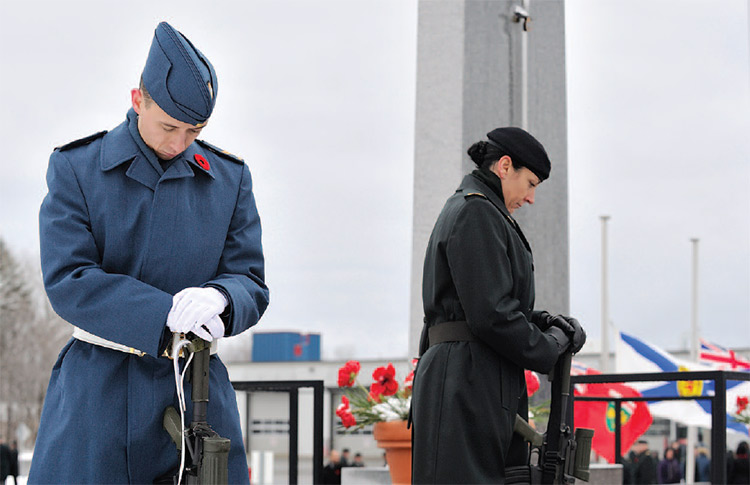
"Some Veterans’ cases can be challenging, more so when it appears as they are being cheated out of something they have earned and deserve. In all my interactions with Veterans, I focus on adapting my approach to meet their needs. Their level of autonomy often varies drastically, as does their level of knowledge and understanding of VAC programs and services."
Annexes
Annex A - Financial Report
As per the 2013-14 Report on Plans and Priorities, the Veterans Ombudsman planned spending was $6.1 million.
Planned Spending and Treasury Board Authorities 2013-2014
| Organization | Salary | Operating | 2013-14 Planned | 2013-14 Authorities |
|---|---|---|---|---|
| Office of the Veterans Ombudsman* | $2,750,000 | $993,000 | $3,743,000 | $3,792,540 |
| Veterans Affairs Canada (provision of services to the Office) | $989,367 | $427,000 | $1,416,367 | $1,446,827 |
| Treasury Board (employee benefits) | $695,850 | $646,310 | ||
| Previous Year Carry-Forward ** | $200,000 | $200,000 | ||
| Paylist Allocation | $96,050 | |||
| Net Adjustments (incl. Collective Bargaining) | $18,346 | |||
| Total | $6,055,217 | $6,200,073 |
* 2013-14 Authorities include conversion factor
**Operating Budget Carry-Forward was included in planned spending for fiscal year 2013-14
Veterans Ombudsman Program and Operational Expenditures 2013-2014
| Program or Operational Requirements | Expenditures |
|---|---|
| Salaries and Wages | $2,817,332 |
| Total Salaries and Wages | $2,817,332 |
| Transportation and Communications | $164,463 |
| Information | $19,163 |
| Professional and Special Services | $437,081 |
| Rentals | $8,514 |
| Purchased Repair and Maintenance | $14,316 |
| Utilities, Materials and Supplies | $11,511 |
| Acquisition of Machinery and Equipment | $22,441 |
| Other | $14 |
| Total Operating Expenditures | $677,503 |
| Total | $3,494,835 |
2013-2014 Veterans Affairs Canada, Program and Operational Expenditures for the Provision of Services to the OVO (Excluding Internal Services)
| Program or Operational Requirements | Expenditures |
|---|---|
| Salaries and Wages | $593,966 |
| Operating Expenditures | $99,736 |
| Total | $693,702 |
2013-2014 Summary of Expenditures
| Organization | Expenditures |
|---|---|
| Office of the Veterans Ombudsman | $3,494,835 |
| Veterans Affairs Canada (provision of services) | $693,702 |
| Treasury Board (employee benefits) | $646,310 |
| Paylist Allocation | $118,159 |
| Total | $4,953,006 |
Annex B - Reports Published in 2013-2014
Improving the New Veterans Charter: The Parliamentary Review
This Report, delivered before the parliamentary committee review of the NVC took place, emphasized program areas that directly affect the transition of Veterans from military to civilian life. (April 4th, 2013)
Review of the Support Provided by Veterans Affairs Canada through its Long-Term Care Program
This Review was undertaken to provide a common basis of understanding of the Department’s current role in the funding of long-term care benefits for Veterans, addressing eligibility, accessibility and the cost of the Program. (August 14th, 2013)
Investing in Veterans’ Vocational Training
This Report examined the delivery and adequacy of VAC’s vocational rehabilitation and assistance services. It also offered recommendations to ensure that VAC maintains its commitment to effectively re-establish injured Veterans into civilian life. (August 26th, 2013)
Improving the New Veterans Charter: The Report
The Report was a follow-up to Improving the New Veterans Charter: The Parliamentary Review. The focus of this report was on the three program areas identified as shortcomings in the NVC: financial support, vocational rehabilitation and assistance, and family support. (October 1st, 2013)
Improving the New Veterans Charter: the Actuarial Analysis
This Report provided detailed demographic and financial data about the current effects of the financial programs that support Veterans. Its focus was on the economic benefits of the NVC, as opposed to the non-economic benefits. (October 1st, 2013)
Review of the Support provided by Veterans Affairs Canada through its Veterans Independence Program
This Review examined the Veterans Independence Program and focused on the eligibility, accessibility and cost factors of the Program. (February 18th, 2014)
